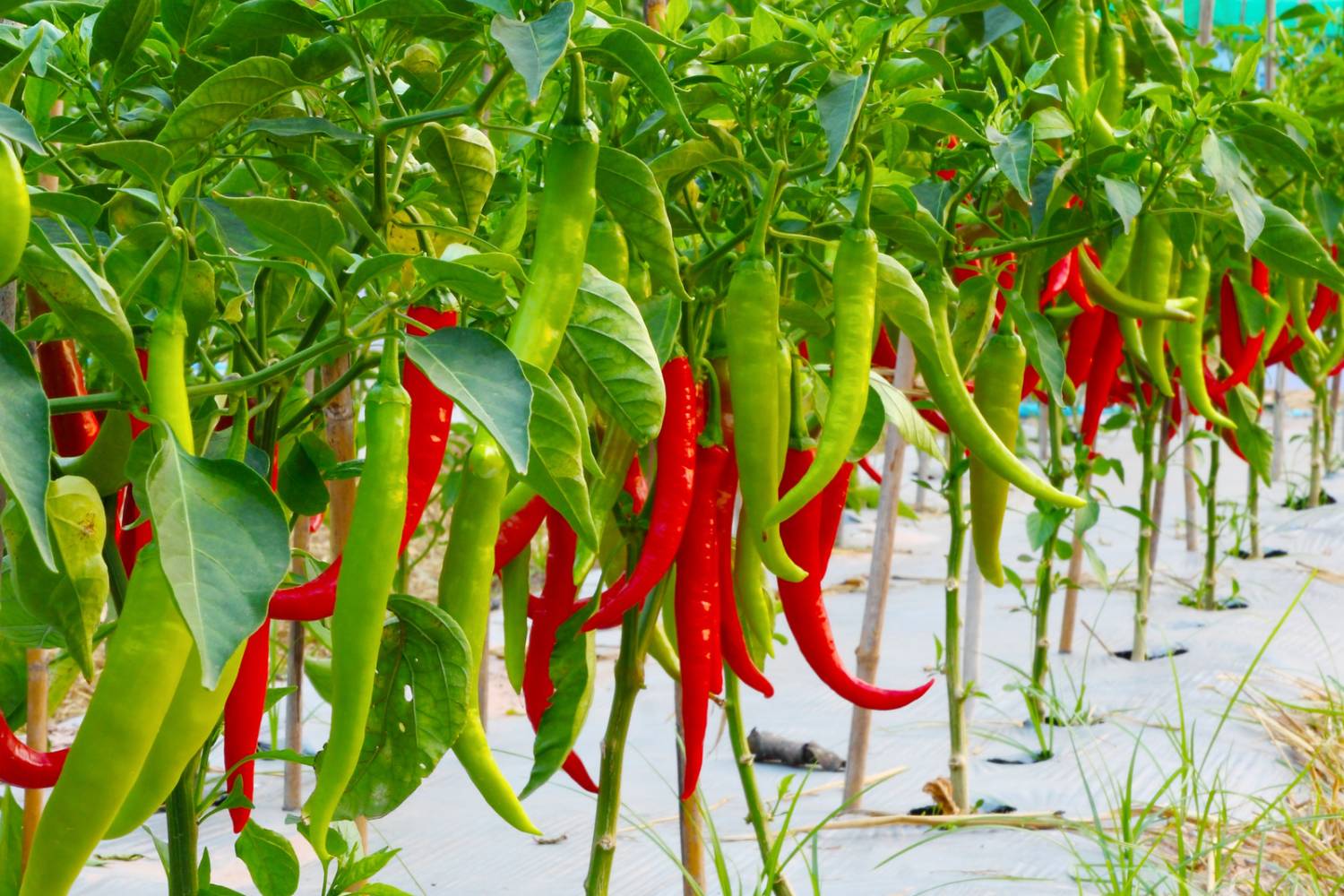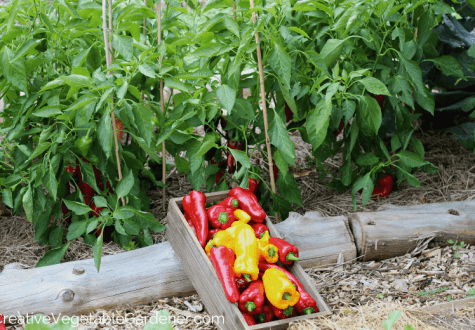Best Fertilizers for Peppers: A Comprehensive Guide to Increase Your Harvest
Best Fertilizers for Peppers: A Comprehensive Guide to Increase Your Harvest
Blog Article
Organic Vs. Synthetic Fertilizers: Which Is Best for Supporting Healthy And Balanced Pepper Plants?
In the realm of supporting healthy pepper plants, the selection between synthetic and natural fertilizers stands as a crucial choice with significant implications. While both choices purpose to provide important nutrients to support plant development, the nuances of their influence on the soil, plant health, and the atmosphere stimulate an argument that mirrors throughout the gardening community. Recognizing the distinctive benefits and prospective pitfalls of each plant food kind is important for pepper growers seeking to maximize their yields while keeping a sustainable and eco-conscious approach.
Benefits of Organic Plant Foods
Organic plant foods provide a sustainable and environmentally-friendly technique to nourishing pepper plants, offering important nutrients without making use of artificial chemicals. These all-natural plant foods are obtained from organic sources such as compost, manure, bone meal, and algae, advertising soil health and wellness and biodiversity. Unlike synthetic plant foods, natural alternatives release nutrients gradually, making certain a steady and well balanced supply for pepper plants to flourish.
One significant advantage of natural plant foods is their capacity to enhance soil structure and water retention. By improving soil wellness, natural fertilizers advertise advantageous microbial task, which assists in nutrient uptake by pepper plants. Furthermore, natural fertilizers decrease the danger of chemical run-off, securing water sources from air pollution and securing the environment.
Furthermore, organic fertilizers contribute to long-lasting dirt fertility by advertising the development of advantageous dirt microorganisms. These microorganisms aid break down organic matter, releasing nutrients in a form that is easily obtainable to pepper plants. best fertilizers for peppers. By promoting a healthy and balanced soil ecological community, natural plant foods sustain lasting pepper cultivation methods that benefit both plants and the environment
Drawbacks of Synthetic Fertilizers
Synthetic plant foods, in comparison to their natural equivalents, present various drawbacks when made use of to nurture pepper plants, influencing both plant health and wellness and environmental sustainability. One significant disadvantage of synthetic plant foods is their tendency to seep nutrients from the soil promptly.
In addition, the overuse of artificial plant foods can add to water pollution. Excess plant foods not taken in by plants can get rid of right into water bodies, leading to eutrophication, where algae flowers deplete oxygen degrees in the water, harming marine life. Artificial fertilizers are typically derived from non-renewable resources, such as fossil fuels, contributing to carbon exhausts and environmental destruction during their manufacturing.
Nutrient Absorption Contrast
Reliable nutrient absorption plays an important role in the total health and growth of pepper plants. When comparing natural and synthetic plant foods in terms of nutrient absorption, organic fertilizers have the benefit important source of supplying a much more balanced and slow-release source of nutrients (best fertilizers for peppers). Organic plant foods have a range of macro and trace elements that are not just valuable for the plants yet also advertise healthy soil microbial task, which helps in nutrient uptake. On the other hand, artificial fertilizers usually offer a quick release of nutrients, which can lead to leaching and runoff, causing reduced nutrient absorption rates by the plants.
In addition, natural plant foods improve dirt structure and water retention capacity, allowing pepper plants to gain access to nutrients much more successfully. This better dirt quality facilitates origin advancement, enabling better nutrient absorption. Synthetic fertilizers, although originally improving plant development because of their high nutrient focus, may hinder lasting nutrient absorption by derogatory dirt health gradually.
Environmental Influence Factors To Consider

On the various other hand, artificial plant foods, although frequently more focused and quickly readily available to plants, can have damaging results on the atmosphere otherwise applied appropriately (best fertilizers for peppers). Their manufacturing requires high power inputs, causing greenhouse gas exhausts and adding to climate modification. The drainage of excess artificial fertilizers can contaminate water resources, leading to eutrophication and hurting aquatic ecological communities.
Finest Plant Food Practices for Peppers
When fertilizing pepper plants, maximizing nutrient uptake and lessening environmental influence are essential factors to consider. To attain this, it is necessary to comply with best fertilizer click here for more info methods customized to the specific requirements of pepper plants. One crucial practice is to perform a dirt examination before applying any fertilizers. This examination can determine the pH degree of the dirt and identify any nutrient shortages, assisting you in picking one of the most ideal fertilizer formulation.
Another important method is to feed pepper plants at the best time. Commonly, peppers gain from obtaining fertilizer at growing and afterwards again when they begin to flower. Over-fertilizing can lead to vitamins and mineral inequalities and harm the plants, so it is crucial to comply with suggested application prices.
In addition, choosing a balanced fertilizer with an NPK proportion that matches pepper plants' needs is fundamental. Organic plant foods, such as compost or manure, can be excellent choices as they release nutrients slowly and enhance dirt framework over time. Nonetheless, synthetic plant foods can supply a fast nutrient boost when required. Ultimately, integrating organic and artificial plant foods sensibly can aid support healthy and balanced pepper plants while minimizing environmental influence.
Final Thought

Organic fertilizers use a lasting and environmentally-friendly method to beneficial pepper plants, providing vital nutrients without the use of artificial chemicals. Unlike synthetic fertilizers, natural alternatives release nutrients slowly, ensuring a constant and well balanced supply for pepper plants to flourish.
Artificial plant foods, in contrast to their organic counterparts, posture different disadvantages when made use of to nourish pepper plants, impacting both plant wellness and ecological sustainability. When comparing organic and why not check here artificial plant foods in terms of nutrient absorption, natural plant foods have the advantage of giving an extra well balanced and slow-release resource of nutrients.In addition, natural fertilizers enhance soil framework and water retention ability, enabling pepper plants to gain access to nutrients a lot more successfully.
Report this page